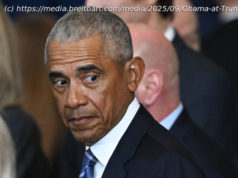“I do think we’re in a moment here,” said Laura Edelson, a Northeastern University professor and expert on social media algorithms. “Our country is being digitally mediated.”
“I do think we’re in a moment here,” said Laura Edelson, a Northeastern University professor and expert on social media algorithms. “Our country is being digitally mediated.”
Charlie Kirk‘s mastery of social media was key to his rise as an influence in conservative politics. So the extent to which his death and its aftermath have played out on those forums shouldn’t come as a surprise.
In a microcosm of life today, social media is where Americans have gone to process last week’s killing in Utah and is the chief tool his supporters are using to police those they feel aren’t offering proper respect. Investigators are probing the time the man accused of killing Kirk, Tyler Robinson, spent in the “dark corners of the internet” — anti-social media, if you will — leading up to when he allegedly pulled the trigger.
On the other side of the world, as the Kirk story preoccupied Americans, Nepal reeled from a spasm of violence that erupted when the government tried to ban social media platforms.
All of this is forcing a closer look at the technologies that have changed our lives, how they control what we see and understand through algorithms, and the way all the time we spend on them affects our view of the world.
Utah’s governor, Republican Spencer Cox, believes “cancer” isn’t a strong enough word to describe social media. “The most powerful companies in the history of the world have figured out how to hack our brains, get us addicted to outrage … and get us to hate each other,” Cox said Sunday on NBC’s “Meet the Press.”
Democratic Sen. Brian Schatz of Hawaii, urged Americans via social media to “pull yourself together, read a book, get some exercise, have a whiskey, walk the dog or make some pasta or go fishing or just do anything other than let this algo pickle your brain and ruin your soul.”
Chilling videos of Kirk’s Sept. 10 assassination immediately overwhelmed sites like X, TikTok and YouTube, and companies are still working to contain their spread. Confrontational material and conspiracy theories are pushed into social media feeds because they do precisely what they’re designed to do — keep people on the platforms for longer periods of time.
“I do think we’re in a moment here,” said Laura Edelson, a Northeastern University professor and expert on social media algorithms.



![Działo się w czwartek. Oto najważniejsze wydarzenia [SKRÓT DNIA]](http://nhub.news/wp-content/uploads/2025/09/thumbeb996d0ac28669e11e1ade949fe29ee6-100x75.jpeg)

